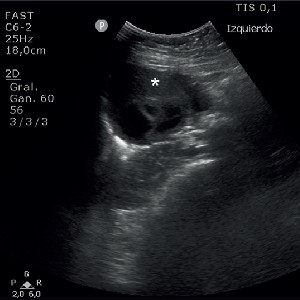Enhancing psychological support and communication in intensive care unit data transmission
Published: 19 August 2024
Abstract Views: 170
PDF: 63
Publisher's note
All claims expressed in this article are solely those of the authors and do not necessarily represent those of their affiliated organizations, or those of the publisher, the editors and the reviewers. Any product that may be evaluated in this article or claim that may be made by its manufacturer is not guaranteed or endorsed by the publisher.
All claims expressed in this article are solely those of the authors and do not necessarily represent those of their affiliated organizations, or those of the publisher, the editors and the reviewers. Any product that may be evaluated in this article or claim that may be made by its manufacturer is not guaranteed or endorsed by the publisher.
Similar Articles
- Lorenzo Viola, Giuliano Bolondi, Carlo Bergamini, Luca Bissoni, Marco Benni, Domenico Pietro Santonastaso, Sofia Vitali, Mario Piccinno, Luca Mezzatesta, Giovanni Scognamiglio, Alessandro Circelli, Esophageal manometry: a valuable tool for the comprehensive management of COVID-19-related hypoxic respiratory failure , Acute Care Medicine Surgery and Anesthesia: Vol. 1 No. 1 (2023)
- Francesca Schettino, Francesco Coletta, Crescenzo Sala, Antonio Tomasello, Anna De Simone, Elena Santoriello, Marco Mainini, Simona Cotena, Silvia Di Bari, Romolo Villani, Serratus plane block and erector spinae plane block in the management of pain associated with rib fractures in chest trauma: a brief report from a single-center , Acute Care Medicine Surgery and Anesthesia: Vol. 1 No. 1 (2023)
- Francesco Coletta, Simone Esposito, Giovanna Di Maiolo, Filomena Lo Chiatto, Mariarosaria Cuomo, Giovanna Paola De Marco, Pasqualina Amitrano, Crescenzo Sala, Antonio Tomasello, Romolo Villani, Loxosceles rufescens: single-institutional epidemiology, diagnosis and treatment , Acute Care Medicine Surgery and Anesthesia: Vol. 2 No. 1 (2024)
- Andrea Sica, Daniele Bellantonio, Luca Gobbi, Alessandro Oliva, Alessio Cittadini, The role of Sufentanil in intensive care unit , Acute Care Medicine Surgery and Anesthesia: Vol. 1 No. 1 (2023)
- Gianmaria Chicone, Viviana Miccichè, Rosa Gallo, Francesco Maiarota, Roberta Toto, Ciro Fittipaldi, Michele Iannuzzi, Awake intubation in a patient with morbid obesity in the emergency department: our experience , Acute Care Medicine Surgery and Anesthesia: Vol. 2 No. 1 (2024)
- Raffaele Aspide, Carlo Alberto Castioni, Alfredo Del Gaudio, Francesca Rubulotta, Which neurocritical care skills support daily work in general critically-ill patients? , Acute Care Medicine Surgery and Anesthesia: Vol. 2 No. 1 (2024)
- Gianmarco Russo, Moana R. Nespoli, Dario Maria Mattiacci, Dario Amore, Maurizio Ferrara, Domenico P. Santonastaso, Francesco Imperatore, Marco Rispoli, Thoracic paravertebral block vs mid-point transverse process to pleura block in thoracic surgery. Preliminary evaluation of effectiveness and safety , Acute Care Medicine Surgery and Anesthesia: Vol. 1 No. 1 (2023)
- Ludovica Golino, Marco Caiazzo, Pasquale Diglio, Espedito Tornincasa, Gianmarco Russo, Francesco Imperatore, Levosimendan off-label successfully used in two patients with exacerbated COPD and severe bronchospasm: a case series focusing on an explorative review of the current literature , Acute Care Medicine Surgery and Anesthesia: Vol. 1 No. 1 (2023)
- Andrea Sica, Luca Gobbi, Daniele Bellantonio, Silvia Passero, Lorenzo Viola, Efficacy of repeated pronations in patients affected by COVID-19-related acute respiratory distress syndrome: think it twice! , Acute Care Medicine Surgery and Anesthesia: Vol. 1 No. 1 (2023)
- Giovanni Scognamiglio, Guido Gambetti, Andrea Sica, Carlo Bergamini, Giorgia Perini, Retroversion bronchoscopy: an innovative approach to percutaneous dilatational tracheostomy and more , Acute Care Medicine Surgery and Anesthesia: Vol. 2 No. 1 (2024)
You may also start an advanced similarity search for this article.

 https://doi.org/10.4081/amsa.2024.44
https://doi.org/10.4081/amsa.2024.44






